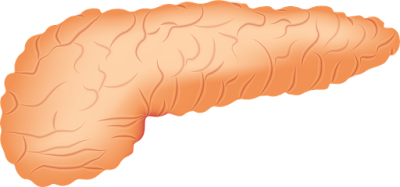How to treat food poisoning at home
Diet food poisoning
Food Poisoning - inflammation of the digestive tract, which is in the form of acute gastroenteritis. Their cause is usually found in food bacteria or viruses.
Symptoms of food poisoning
Usually, there are:
- nausea, vomiting, abdominal pain, diarrhea, sometimes accompanied by fever.
These symptoms most often disappear after a few days.
Note! There are poisoning (eg botulism) that require immediate medical attention. It causes poisoning toxin, which is produced during anaerobic growth of Clostridium botulinum, which occurs as a result of the consumption of infected meat, vegetable and fish in cans or wekach.
Patients, in addition to symptoms of gastroenteritis suffer paralysis of facial muscles, which gives a picture of mask-face. Moreover, he sees double, has a wide pupil, often appears ptosis, hoarseness or even aphonia.
This may also include:
- difficulty swallowing, constipation, urinary retention due to damage to the nervous system.
Note! Therefore botulism require hospital treatment.
Medical assistance is also required in acute poisoning with Salmonella. The most frequently (in 80% of cases) is the acute gastroenteritis with symptoms of nausea, abdominal pain, diarrhea, and sometimes there is fever and headaches.
Note! Salmonella is present primarily in fresh and undercooked poultry and raw eggs. Therefore, the preparation of poultry use other knives and cutting boards to prepare than other products.
On the other hand, when it comes to ordinary food poisoning when there is no possibility of contact with the doctor, treatment consists primarily symptomatic and application procedure sparing diet.
The main component of the treatment is to compensate for the loss of fluids, because it can lead to dehydration. Vomiting and diarrhea also lead to a large loss of electrolytes, especially sodium, potassium and chlorine. Electrolyte Deficiencies overlapping dehydration worsen the patient's condition and can cause disorder especially cardiovascular.
If diet alone will not bring positive results, then it is necessary to seek medical advice.
Note! Any type of pharmacological treatment should be done under medical supervision.
How to prevent food poisoning?
You must:
- Wash your hands before contact with any food product,
- Check the expiration dates placed on packaging
- Chopping boards, poultry and fish thoroughly wash and do not use for other purposes,
- Reheat cooked food no more than once,
- Keep perishable products under refrigeration
- Avoid summer foods containing raw eggs,
- Thaw in the refrigerator products, whilst ensuring that leaks from thawing the meat does not enter the other foodstuffs,
- Avoid drinking unboiled tap water or well,
- Thoroughly wash fruits and vegetables before consumption,
- Food once thawed do not refreeze.
The products recommended in diets
For 1-2 days in acute gastritis usually not accepted any food. During fasting, but must not under any circumstances forget about eating the right amount of fluids to prevent dehydration. Recommended low-sugar drinks at room temperature, such as tea, chamomile, herbal tea with mint, still water. During the day should drink about two liters of fluid. More preferably drink often, but in small quantities.
If vomiting persists, then you can drink greater amounts to provoke vomiting and re-clean the stomach of unwanted food.
Foods should be introduced gradually. First diet slowly expanding to mash, made with rice or semolina boiled on the water (not the milk!) With salt. If the introduction of these types of foods will not cause any adverse symptoms, it further extend the diet of biscuits. Then you can spice up the menu, including, eg, soft-boiled egg, boiled potatoes, boiled meat.
The meat should choose lean and delicate species, such as:
- veal, lean poultry, such as chicken or turkey without the skin.
Note! In the initial period of intoxication do not eat fruits and vegetables, especially raw, and sweet desserts. In a further enlargement of the menu, you can specify a banana or fruits that contain a lot of pectin, such as baked apple, slowly going to the usual diet.
Products prohibited in the diet
Avoid the following:
- preserves, pickles, smoked meat and fish, vegetables, legumes, brassica vegetables, alcohol, and spicy foods,
Excluded is the administration or fried foods contain a large amount of fat and beverages containing caffeine (coffee, cola).


Comments
Post a Comment